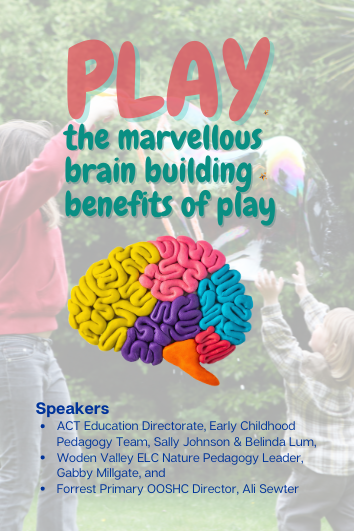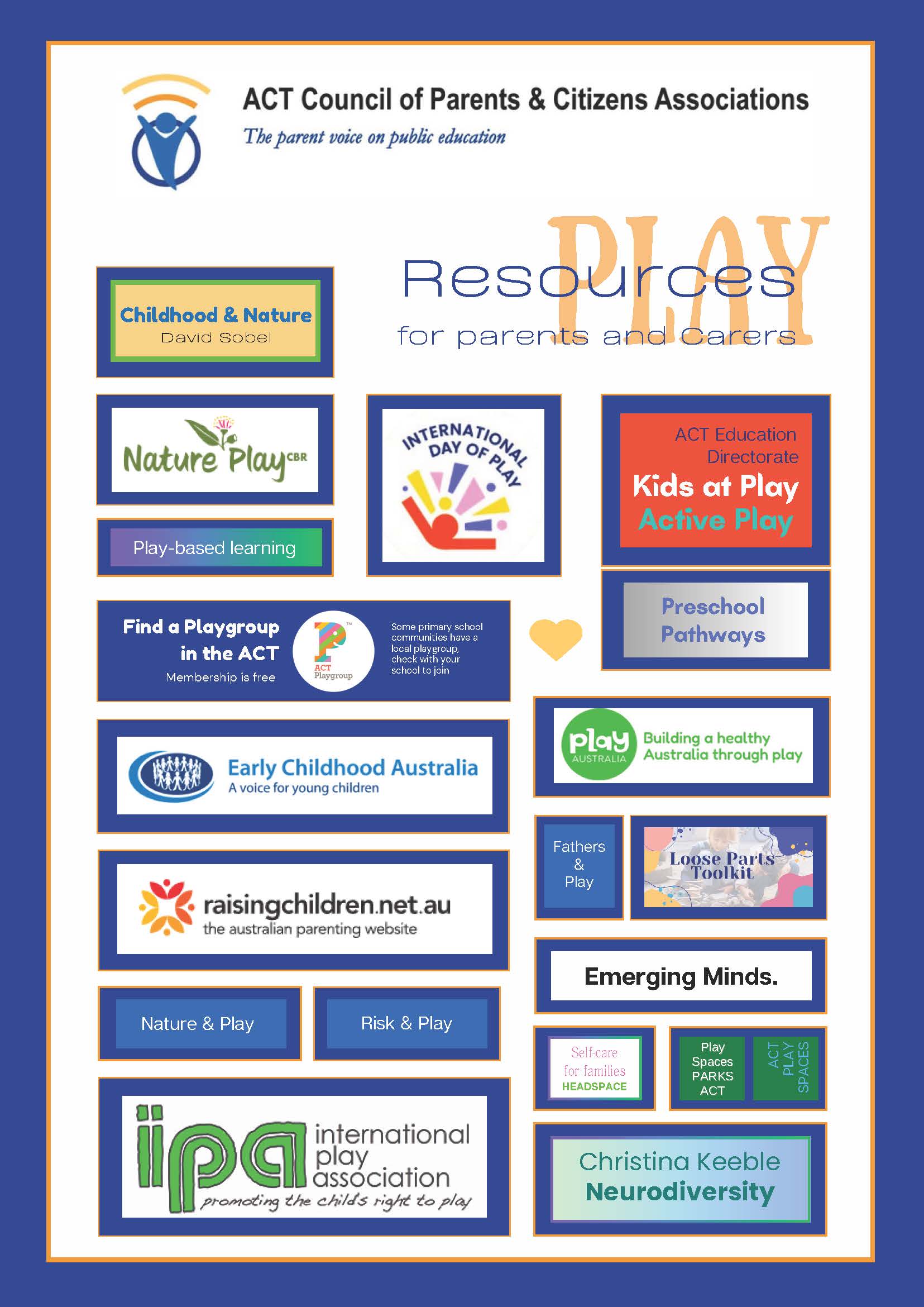Play webinar series - recordings for parents and carers
Learn more about the crucial role of play in children's social, emotional, and cognitive development and the significance of play in promoting children's well-being and learning. Tips to support and enhance children’s play, the extraordinary benefits of nature and risk in play, and some things you can do to get more play in your day.
- The Importance of Children’s Play Sally Johnson and Belinda Lum, ACT Education Directorate, Assistant Directors, Early Childhood Pedagogy Team,
- The role of ‘Nature in Play’ Gabby Millgate, Woden Valley ELC, Nature Pedagogy Leader,
- The role of ‘Risk in Play’ Ali Sewter, Forrest Out of School Hours Care, Director,
Speakers emphasized the benefits of play-based pedagogy, intentional play, and nature-based play for fostering creativity, problem-solving skills, and emotional resilience. The importance of uninterrupted time for exploration, agency and autonomy, and taking risks were discussed.
Further resources from education experts:
Dr Peter Gray, author of “Free to Learn,” defines play and discusses why unleashing the instinct of play makes children happier, more self-reliant, and better students for life.
Pasi Sahlberg, educator, teacher, and author has worked as a schoolteacher, teacher-educator, academic, and policymaker in Finland, and has advised schools and education system leaders around the world. He is currently Professor of Educational Leadership at the University of Melbourne, Australia. Read his blog Let the children play.
The True Play Foundation seeks to support the work of educators and communities who are committed to creating practices, programs and policies that protect and support the right of every child to uninterrupted, self-determined True Play.
The five characteristics of learning through play.
Neuroscience educator, teacher, and public speaker, Nathan Wallis provided useful videos during Covid that help with ideas about learning at home:
- 2 mins about brains, learning, routine, and play
- more about guiding
- even more on creativity
- What 3-7 yr olds need to learn audio
- why correcting can slow learning
- problem solving as Intelligence
- how creativity enhances problem solving
- create the thinker before the facts
- stop spontaneous testing, ie 'what colour is that?'
- Play based learning
- About brains and behaviour
- Managing with children at home during remote learning
- The neuroscience of wellbeing.
Outdoor play
Outdoor spaces and thoughtfully designed playgrounds are important for children's play. Author David Sobel consults and lectures nationally and internationally on place-based education, children’s relationship with nature and nature-based early childhood education. Here's a selection of interviews on children's play.
Knowing where to find great playgrounds and what makes them good helps parents to be part of the playground conversation. Try this local Playground Finder.
Why play is important - article (languages other than English): Arabic (PDF: 395kb), Dari (PDF: 398kb), Dinka (PDF: 308kb), Hakha Chin (PDF: 301kb), Karen (PDF: 216kb), Persian (PDF: 197kb), Simplified Chinese (PDF: 329kb), Swahili (PDF: 304kb), Tamil (PDF: 705kb), Vietnamese (PDF: 322kb)


